Keywords: John Locke; Richard King; Prudentia; Politia; Aristotle; Thomas Aquinas; Scholastic philosophy; Stoicism
During the seventeenth century, the concept of prudence underwent a process of radical transformation: its status as an intellectual virtue, seeking to apply right reason to the enactment of means to morally appropriate ends, had already become problematic during the Renaissance, but it is its moral significance which was brought into question in the writings of the seventeenth century theorists of ratio status. This gradual process of erosion is witnessed in some works of John Locke, especially his correspondence and some of his journal notes; however, some manuscripts of the philosopher dating back to the years 1670-1686 reveal he bestowed an important role on the virtue of Prudentia. These manuscripts contain different outlines of a classification of knowledge; the outlines are also evidence of a development in Locke’s concept of Prudentia, which leads from an original interpretation in Scholastic terms to a rereading more strictly inspired by Cicero’s notion of decorum. This paper aims at reconstructing the steps of this development; the point of departure of the analysis, and a fundamental key of interpretation, is a letter written by Locke to the Reverend Richard King in 1703, where he dwells on prudence and its proper business. The paragraphs examine the single outlines in detail and some journal notes relevant to the topic of discussion; a paragraph is devoted to a brief excursus on the history of the concept of prudence. In the last paragraph, I return to the letter to Reverend King, in order to argue that the development of the concept of prudence in Locke’s thinking leads to its exclusion from the dominion of morals.
More...Annales of Ennius, partly aimed at survey of Roman history year by year, partly at memorizing Roman heroes and equating them to gods, though had a few antecedant models in Hellenistic epic, remains unrivalled in respect of vastitude and bravery of the innovatory devise. The poem, praising deeds of Roman god-like ancestors, kings, consuls and tribunes, had certain political aspirations tending to melt the scepticism towards Greek culture and its reception among conservative members of aristocracy of Ennius’ time. On the other hand, being performed in traditional Roman convivial setting, Annales were in accord with Roman piety and reverent attitude towards gods, whence poet’s aim at his own otherness and impartiality might be discerned. Annales of Ennius not only reminds its readers of Roman strategy of gaining over Carthaginian or Greek deities during Roman expansion outside Appenines, but also claims their common identity with Roman gods, whence the idea of Greek and Roman cultural affinity and common genealogy comes. This idea most probably originates from the deep consideration of homeric and hellenistic epic and their exegetical traditions combined with other philosophical views (even contrasting ones) attainable in III B. C. Italy. However, the state of extant text of Annales, consisting of over 600 fragmentary verses (plus around 100 more or less identified testimonia together with recently deciphered fragments from Herculanean papyrus), doesn’t provide us with certain argument what attitude in Ennius’ notion prevailed, unless we investigate one by one all the mentions of gods in this poem. The complex task is treated in this article in a selective manner: the main attention is paid only to the limited part of over 40 deities present in Annales, namely, to the Greco-Roman dodekatheon or di consentes, most clearly attested in Ann. 240–241 Sk. The method of investigation rests on the description of each deity separately, both trying to establish the most characteristical features of each in Ennian depiction and compare with the evidence of his / her contemporary cult and degree of syncretization. In the course of analysis, a somewhat parallel attempt is also made to verify Cicero’s message concerning Ennius’ belief in gods in general (Div. 1, 58). The analysis shows quite divergent result resting upon incomplete status of our sources: some gods are depicted as participants of human actions, some remain mere vague representatives of natural phenomena. The bulk of conclusions deals with national dependance, hierarchy and stylistic variation of Ennius’ dodekatheon. Material of this paper clearly indicates the national priority in Annales: the most honoured both statistically and virtually are the four ancestral Roman gods (di genitales) – Juppiter, Juno, Venus and Mars.
More...Keywords: anniversary; statute; problem discussing profile; author staff of the journal;
Fifteen years have elapsed since the first volume of Philosophical Alternatives Journal appeared at the end of 2006 – this anniversary is a good reason to calculate what is done in its up to now history. And yet the research has its deeper ground – the need of transitional recapitulation concerning the distance covered by the professional philosophers in Bulgaria during the post-totalitarian period. Good base for that to be done is the rationalization of the growth of the Alternatives, as long as they could be taken as an authentic mirror about the condition of the philosophical culture in the country. Something more, the journal takes central place not only in the professional philosophical press, but in the contemporary philosophical culture in Bulgaria. In this article the author tries to make a detailed analysis of the issue, using rich empiric material. The research is built onto some basic sections: statute and circle of existence, structuring, problem discussing profile and the idiosyncrasies of the author staff in the journal. Each section has its specific cuts that aim the expressiveness of the research.
More...Keywords: social trust; legitimacy of law-producing and law-implementing institutions
The question of social trust in the legitimacy of law-producing and law-implementing institutions is closely related with individuals’ experiences especially in countries with state-sponsored regimes of repression and violence. In Bulgaria and Greece, memories of past repressions, in the first case during a long-established totalitarian regime, and in the second after several episodes of authoritarian regimes, contributed to creating distrust in public authority and its legal institutions that is endemic to this day. I will focus on present political schisms inherited from experiences of radical changes, political instabilities and discontinuities. At a certain level, they explain the structural distrust towards the legal systems and the politics in these countries. In this project, I wish to approach the problematic of the hidden order and social distrust by studying a dichotomy instrumentalised at all levels of social life between ‘people from the Left’ and ‘people from the Right’. In both countries, the Left/Right denomination appears as a strategy of (re)presentation of the Self in everyday life. In this process of labelling, individuals and groups are classified as either ‘ours’ or the ‘other’s’. This approach considers the phenomenon as both a heritage of past political cleavages (family experiences of exclusion, political fights and repression) and as a collective and individual identification that confers, or else dispossesses, rights and privileges in social life.
More...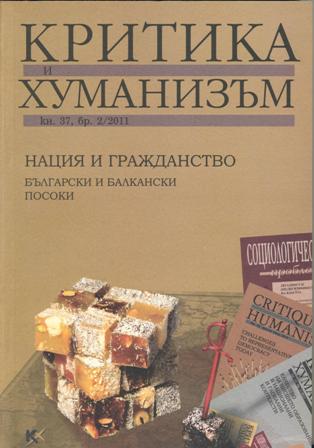
Keywords: lexicon; Bulgaria; childhood; adolescence; socialism
children and teenagers in the late socialist times – with an emphasis on the so-called lexicon (album, Freundschaftsbuch) and the memory book; to follow how the child and the adolescent utter themselves, how they construct their identity within the two mentioned unoffi cial genres on the verge of the private and the public; to outline the problematic authenticity of their story between the banality of the ideology and the clichés of the popular culture. The paper traces how the informal private language of the lexicon and the totalitarian public language interfere or coincide, and how in the institutional fi eld of force and despite the social roles assigned to them, the child/adolescent fi nds shelter in the lexicon. The second part of the project and the second point in time include gathering and analyzing short interviews with owners of lexicons in order to fi nd out how they regard their “lexicon experience” from the distance of two or three decades and in a totally different context.
More...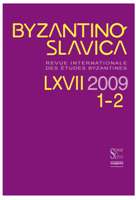
Razmatranje o potencijalima tradicije praxis-filozofije danas s osvrtom na dekonstrukciju etike M. Kangrge. Die Abhandlung nimmt zunächst eine textnahe systematische Nachkonstruierung von grundlegenden Ausführungen Kangrgas vor, mit denen seine gut bekannten Thesen über die Aufhebung von Moral und Ethik durch die Revolution aufgestellt werden. Dem fol gt eine Problematisierung gewisser Voraussetzungen, von denen diese Ausführungen ausgehen. Hierbei stellt der Verfasser u.a. fest, dass die Revolutionierung von gesellscha ftlichen Verhältnissen Moral und Ethik doch nicht unvermeidlich obsolet macht und ein Streben nach der Verwirklichung von ethischen Grundsätzen auch durch die (schrittweisen) Reformen möglich sei. Anschliessend wird das Program einer im Zeichen der Kritik und Überwindung von bestehenden gesellschaftlichen Verhältnissen stehenden Idee der Ethikverwirklichung im Rahmen der New Left-Sozialphilosophie untersucht, die Kangrga mit besonderer Brisanz und Folgerichtigkeit aufgegriffen und ausgeführt hat. Unter Berücksichtung von ähnlich ausgerichteten Gedanken von T.W. Adorno sowie H.Marcuse weist der Verfasser auf die nicht genügend beachtete Aktualität der links ausgerichteten Gesellschaftskritik gerade innerhalb der sog. "Transitionsgesellschaften" unter den ex-sozialistischen Staaten hin, in denen sich eine Produktions- und Konsumgesellschaft fest zu etablieren beginnt, wie sie für den Kapitalismus der Mitte des vergange nen Jahrhunderts kennzeichend war. Darüber hinaus wird die Meinung befürwortet, wo nach das theoretische Erbe Marx sowie die New Left-Tradition, zu der auch die hauptsächlich in den siebziger Jahren von den regime unter uen jugoslawischen Philosophen – unter denen Milan Kangrga eine bedeutsame Figur darstellte – entfaltete Praxis-Philosophie zählt, wieder ihre Stelle an den Hochschulen sowie wissenschaftlichen Instituten finden sollten – diesmal aber als eine alternative sozialphilosophische Lehrmeinung, die sich in Konkurrenz mit den anderen, etwa neoliberalen und konservativen Lehrmeinungen stets zu bewähren hat.
More...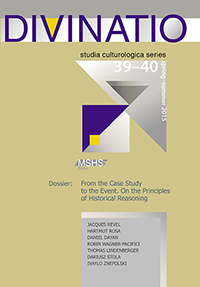

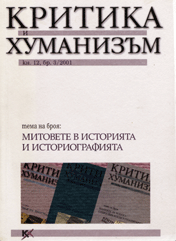
This article is intended to investigate how the representation of history had changed during the XX century, especially, since the tragedy of the Holocaust. This tragedy has got a lot of consequences from the hermeneutical point of view. Primo Levi's witnesses are experiences which teach us that history must be interpreted since events which deny the historical reason. On the other hand, the perception of ethics can become an attention to the individualнs suffering which is no more a simple moment of history. The revalorization of the alterity and the impossibility in the witness (Giorgio Agamben) can influence a very singular exigency of responsibility.
More...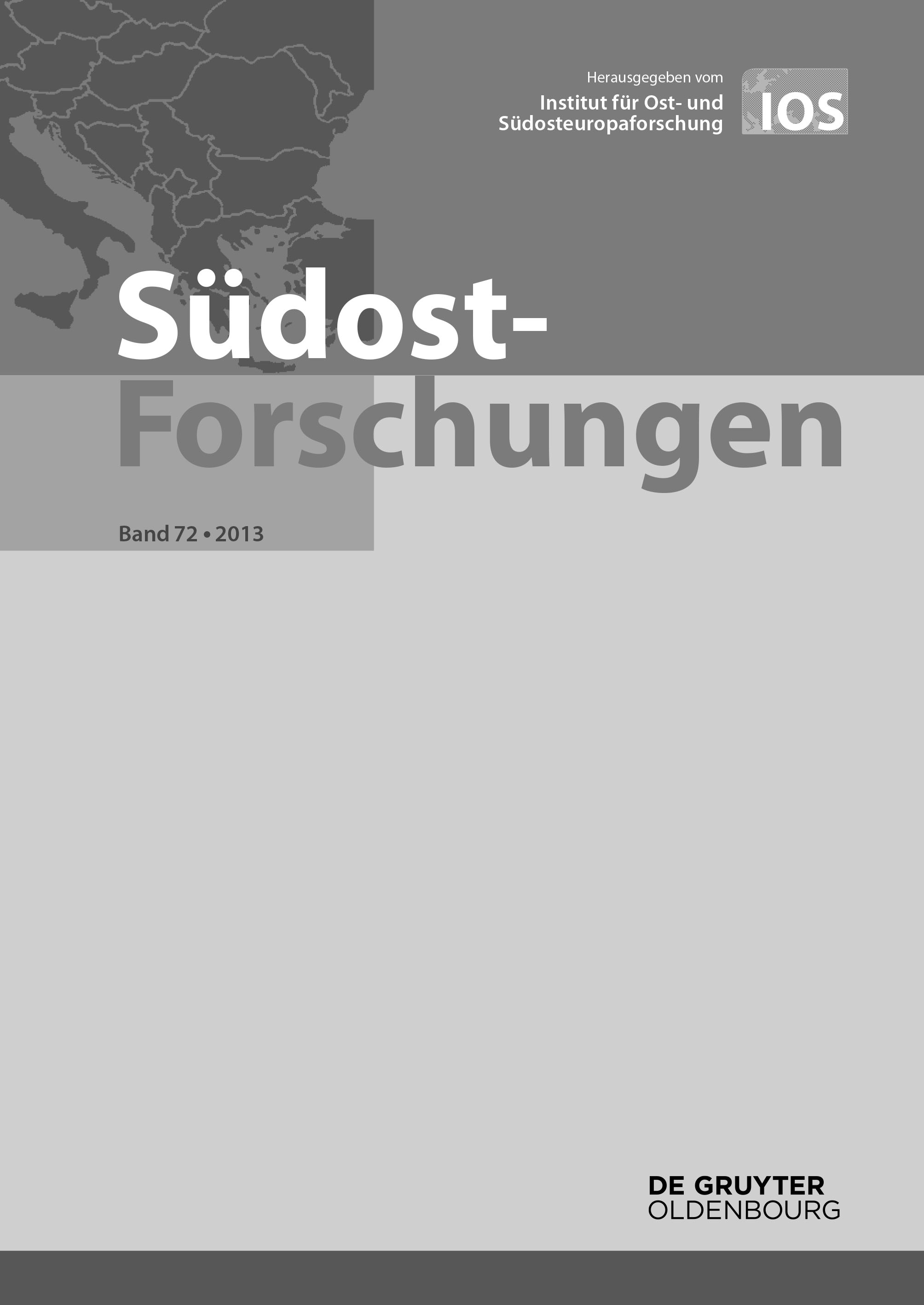
Eleutherios P. Alexakēs, Εθνογραφικό ημερολόγιο [Ethnographisches Tagebuch]. Bd. 1: Ήπειρος (1981-1983) [Epirus (1981-1983)], Bd. 2: Ορεινή Στερεά Ελλάδα (1984-1991) [In den Bergen von Kontinentalgriechenland (1984-1991)]. Athen: Dodone 2007, 2010. 271 u. 565 S., zahlr. Abb. u. Kt., ISBN 978-960-385-472-2 u. 978-960-385-602-3, € 21,30 u. 31,95 Eleutherios P. Alexakēs, Kέα Κυκλάδων. Εθνογραφγικό ημερολόγιο [Auf der Kykladeninsel Kea. Ethnographisches Tagebuch]. Bd. 1 (1986-1988), Bd. 2 (1989-1991). Athen: Dodone 2011, 2012. 490 u. 443 S., zahlr. Abb. u. Kt., ISBN 978-960-385-636-8 u. 978-960-385-637-5, € 31,95 u. 25,56 Mēnas Al. Alexiadēs, Έντυπα μέσα επικοινωνίας και λαϊκός πολιτισμός. Nεωτερικά λαογραφικά [Druckmedien der Kommunikation und Volkskultur. Moderne volkskundliche Themen]. Athen: A. Kardamitsa Ekdoseis 2011. 246 S., zahlr. Abb., ISBN 978-960- 354-284-1, € 21,30 Πρακτικά Πανελληνίου Συνεδρίου „1909-2009: 100 Χρόνια Ελληνική Λαογραφίας“, Πανεπιστήμιο Αθηνών, 11-13 Μαρτίου 2009 [Akten des panhellenischen Kongresses „1909-2009: 100 Jahre Griechische Volkskunde“, Universität Athen, 11.-13.3.2009]. Πρακτικά ημερίδας „Η έρευνα των λαϊκών διηγήσεων στον ελληνικό και τον διεθνή χώρο“ [Tagungsprotokoll „Die Erforschung der Volkserzählungen im griechischen und internationalen Raum“]. Hgg. Mēnas Al. Alexiadēs / Geōrgios Ch. Kuzas. Λαογραφία 42 (2010-2012). Athen: 2013. 1096 S., zahlr. Abb., ISSN 1010-7266 Evangelos G. Avdikos, Παιδική ηλικία και διαβατήριες τελετές [Kindesalter und Übergangsriten]. Athen: Pedio 2012. 527 S., einige Abb., ISBN 978-960-546-071-6, € 29,90 Ders., Σέσκλο Μαγνησίας. Οικονομικές, κοινωνικές και πο ιτισμικές αντιθέσεις και αλλαγές [Das Dorf Sesklo im Bezirk Magnesia, Thessalien. Wirtschaftliche, soziale und kulturelle Gegensätze und Änderungen]. Volos: Edition der Gemeinde Aisonia 2010. 352 S., zahlreiche Abb., Statistiken und Tabellen, 1 Karte, ISBN 978-960-99638-0-0, € 10,– Manolēs G. Barbunēs, Νεωτερική Ελληνική Λαϊκή Θρησκευτικότητα. Συναγωγή μελετών θρησκευτικής λαογραφίας [Moderne Volksfrömmigkeit in Griechenland. Eine Studiensammlung religiöser Volkskunde]. Thessaloniki: Ekdoseis Barbunakis 2014. 790 S., mehrere Abb., ISBN 978-960-267-184-9 Manolēs G. Barb unēs, Θεμελιώδεις έννοιες και μορφές της ελληνικής θρησκευτικής λαογραφίας [Grundbegriffe und -formen der griechischen religiösen Volkskunde], Athen: Στρατηγικές εκδόσεις 2013. 477 S., 12 Abb., ISBN 978-960-8094-77-2 Crossroads. Greece as an Intercultural Pole of Musical Thought and Creativity. International Musicological Conference, Thessaloniki, June 6-10, 2011. Conference Proceedings. Hgg. Evi Nika-Sampson u. a. Thessaloniki: School of Music Studies, Aristotle University of Thessaloniki 2013. 1 223 S., zahlr. Abb. und Noten, ISBN 978- 960-99845-4-9 (eBook) Revisiting the Past, Recasting the Present: The Reception of Greek Antiquity in Music, 19th Century to the Present. Athens, 1-3 July 2011. Conference Proceedings. Hgg. Katerina Levidu / George Vlastos. Athens: Hellenic Music Centre 2013. 324 S., zahlr. Musiknoten, ISBN 978-618-80006-1-2 (eBook) Aristeidēs N. Dulaber as / C hrēstos K. Repp as, Λαογραφικά Μουσεία της Μεσσηνίας [Volkskundliche Museen in Messenien, Südpeloponnes]. Thessaloniki: Ekdoseis Ant. Stamulis 2012. 288 S., zahlr. Abb., 1 Kt., ISBN 978-960-0533-13-3 Aristeidēs N. Dulaber as, Μελετήματα για το δημοτικό τραγούδι [Studien zum griechischen Volkslied]. Thessaloniki: Ekdoseis Ant. Stamulis 2013. 221 S., ISBN 978-960-9533-32-4 Tolmiros Skapaneas. Homenaje al Profesor Kostas A. Dimadis / Τολμηρός Σκαπανέας. Αφιέρωμα στον Καθηγητή Κώστα Α. Δημάδη. Hgg. Isabela García Gálvez / Olga Omatos Sáenz. Vitora-Gasteiz: Sociedad Hispánica de Estudios Neogriegos 2012. (Estudios Neogriegos. Revista cientifica de la Sociedad Hispanica de Estudios Neogriegos 14 (2011-2012)). 573 S., ISSN 1137-7003, € 40,– IV Congreso de Neohelenistas de Iberoamerica „Culturas hispanicas y mundo griego“, Zaragoza 1, 2 y 3 de octobre de 2009 / IV Διεθνές Συνέδριο Νεοελληνιστών της Ιβηρικής Χερσονήσου και της Λατινικής Αμερικής „Ο ελληνισμός από την σκοπιά των ισπανικών πολιτισμών“. Hgg. Olga Omatos Sáenz / Idoia Mamolar Sánchez / Javier Alonso Aldama. Vitoria-Gasteiz, Granada: Sociedad Hispánica de Estudios Neogriegos 2012. 771 S., ISBN 978-84-95905-42-0, € 104,– The Gypsy „Menace“. Populism and the New Anti-Gypsy Politics. Hg. Michael Stewart. London: Hurst & Company 2012. 382 S., ISBN 978-1-84904-220-8, ₤ 14,99 Farkas-Zoltan Hajdú, Tur nach Osten. München: IKGS Verlag 2008. 146 S., zahlr. Anm., ISBN 978-3-9811694-1-6, € 14,50 Rea Kakampura, Αφηγήσεις ζωής. Η βιογραφική προσέγγιση στη σύγχρονη λαογραφική έρευνα [Lebenserzählungen. Biographische Zugänge zur rezenten volkskundlichen Forschung]. Athen: Atrapos 2008. 503 S., zahlr. Tab., ISBN 978-960-459-045-2, € 27,50 Λαϊκός πολιτισμός και έντεχνος λόγος (ποίηση – πεζογραφία – θέατρο). Βd. Ι-ΙΙ: Πρακτικά διεθνούς επιστημονικού συνεδρίου (Αθήνα, 8-12 Δεκεμβρίου 2010) [Volkskultur und Wortkunst (Dichtung – Prosa – Theater). Akten des internationalen Kongresses Athen 8.-12. Dezember 2010)]. Bd. 3: Πρακτικά συμποσίου Ζαχαρίας Παπαντ νιου (Αθήνα, 12 Δεκεμβρίου 2010) [Akten des Symposiums zu Zacharias Papantoniu (Athen, 12. Dezember 2010)]. Hg. Giōrgios Bozikas. Athen: Akademie Athen 2013 (Δημοσιεύματα του Κέντρου Ερεύνης της Ελληνικής Λαογραφίας, 30). 801, 722, 135 S., zahlr. Abb., ISBN 978-960-404-260-9 Nikos Maliaras, Βυζαντινά Μουσικά Όργανα [Byzantinische Musikinstrumente]. Athen: panas music 2007. 623 S., 207 teils farb. Abb. auf Tafeln, ISBN 978-960-7554-44-4, € 45,– Norbert Mappe s-Niediek, Arme Roma, bose Zigeuner. Was an den Vorurteilen uber die Zuwanderer stimmt. Berlin: Ch. Links Verlag 2012. 208 S., ISBN 978-3-86153- 684-0, € 26,90 Christian Marchetti, Balkanexpedition. Die Kriegserfahrung der osterreichischen Volkskunde. Eine historisch-ethnographische Erkundung. Tübingen: Tübinger Vereinigung für Volkskunde 2013. 456 S., ISBN 978-3-932512-73-5, € 29,– Vesna Marjanović, Maske, maskiranje i rituali u Srbiji [Masken, Maskierung und Rituale in Serbien]. Beograd: Čigoja štampa 2008. 343 S., zahlr. teils farbige Abb., 7 Verbreitungskt., ISBN 978-86-7558-557-2 Minority Rights in Central and Eastern Europe. Hg. Bernd Rechel. London, New York: Routledge 2009 (BASEES-Routledge Series on Russian and East European Studies, 54). 242 S., ISBN 978-0-415-45185-7, US-$ 42,55 Angelikē Panopulu, Συντεχνίες και θρησκευτικές αδελφότητες τη βενετοκρατούμενη Κρήτη [Korporationen und Bruderschaften auf Kreta während der Venezianerherrschaft]. Athen, Venezia: Istituto di Studi Bizantini e Postbizantini di Venezia 2012 (Thōmas Phlanginēs, 7). 551 S., Abb., Tab., ISBN 978-960-7743-61-9 Valter Puchner, Laographia [Volkskunde]. 8 Bände. Athen: Ekdoseis Armos 2009-2013. Walter Puchner / Manolēs Barb unēs, Greek Folk Culture. A Bibliography of Literature in English, French, German and Italian on Greek Folk Culture in Greece, Cyprus, Asia Minor (before 1922) and the Diaspora (up to 2000). Athens: Laographia 2011 (Bulletin of the Hellenic Laographic Society. Supplement, 15). 732 S., ISBN 978-960- 89854-5-2 Valter Puchner , Δοκίμια λαογραφικής θεωρίας [Essais zur volkskundlichen Theorie]. Athen: Ekdoseis Gutenberg 2011. 374 S., ISBN 978-960-01-1428-7, € 25,– Aura Xepapadakē, Παύλος Καρρέρ [Pavlos Karrer]. Athen: Fagotto Books 2013. 504 S., zahlr. Abb., ISBN 978-960-6685-52-1, € 28,–
More...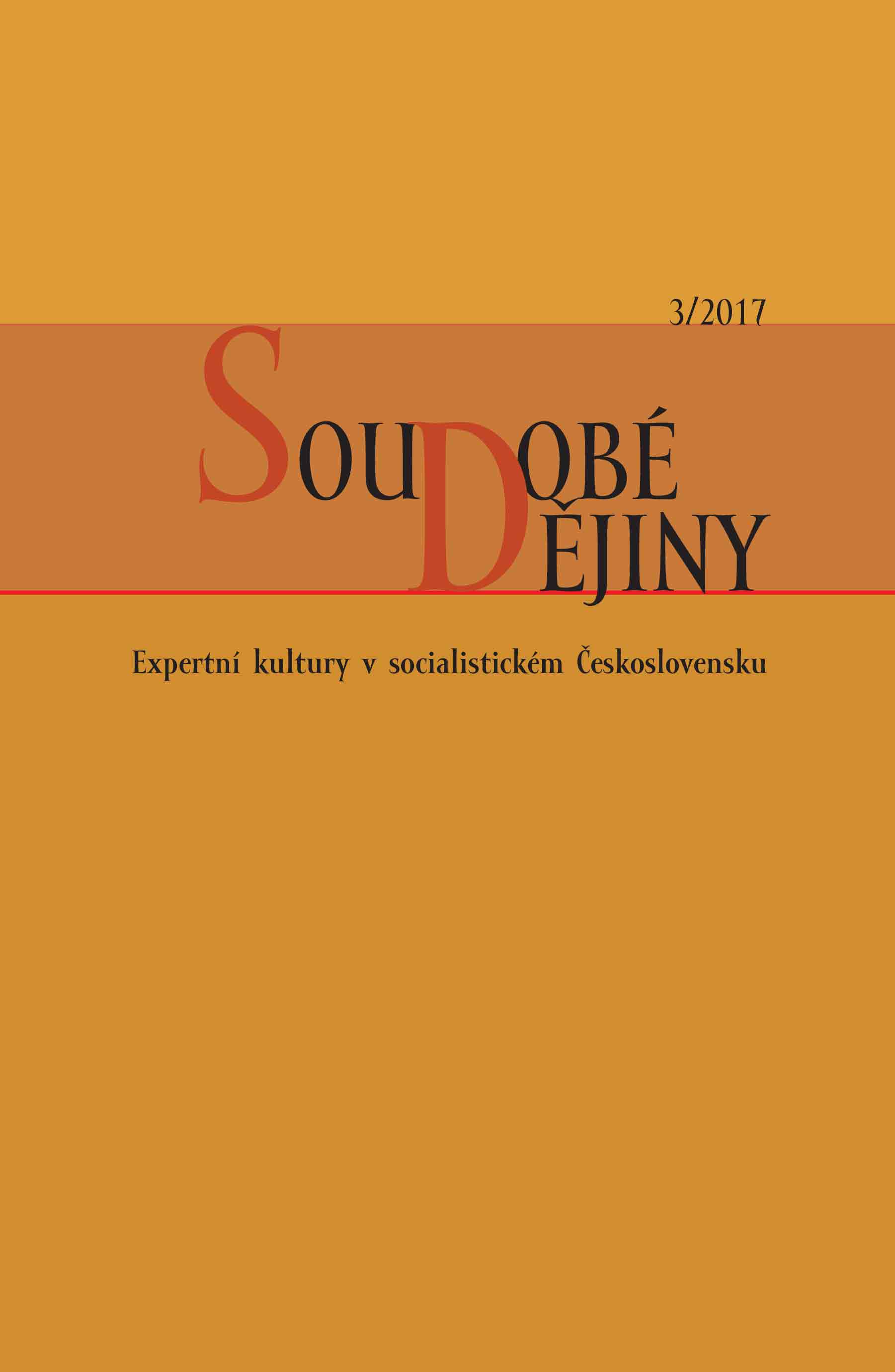
Keywords: corporate management;control mechanisms;expert cultures;Czechoslovakia 1948-89;
The study deals with issues of corporate management and pitfalls of the “socialist supervision” in Czechoslovak enterprises in the period of late socialism. Using documents of the Communist Party of Czechoslovakia and the State Security, period texts and specialized publications, it shows how party organs and state authorities were unsuccessfully trying to make supervisory and audit mechanisms that were used, and outlines basic reasons of the almost fatal failure of supervisory activities of the system which was, in a way, obsessed with supervision and control. He explains the systemic conditionality of the supervisory system which socialist managers often and in many respects bent to suit the needs of the enterprises they were in charge of; such situation naturally did not match the needs of the society as a whole. Usingn many specific cases as an example, the study graphically shows that members of the Czechoslovak corporate management community in the 1980s were fully aware of systemic, political and social limitations of the supervisory system which they managed to modify, fairly successfully, to suit intra-corporate conditions. The result was a situation in which the party leadership was reacting to increasingly obvious symptoms of the “agony of the centrally planned economy” by adopting various directives and guidelines to make the supervisory process more effective and to consistently promote the “whoever manages – supervises” principle. However, the anticipated effect did not materialize and, at the end of the day, the non-functional supervisory mechanisms made a substantial contribution to the collapse of the Communist regime in Czechoslovakia.
More...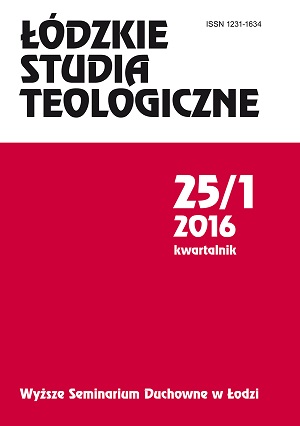
Keywords: John Scotus Eriugena; Medieval Poetry; Medieval Theology; Medieval Philosophy; Pseudo-Dionysius; Maximus the Confessor;
The poetic works of John Scotus Eriugena, dating about from 855 to 877, is one of the lesser known works of the Irish philosopher and theologian, renowned for his treatises De divina praedestinatione and Periphyseon or De divisione naturae and for his Latin translations of Greek patristic works (Pseudo-Dionysius, Maximus the Confessor and Gregory of Nyssa). In this article, after the presentation of some synthetic elements on the figure of John Scotus and his poetic corpus, the major theological aspects of Eriugena’s poems are analysed. From the poetry, often not easy to interpret, the theological depth of John Scotus comes to light. In fact, beyond a concrete occasion, usually liturgical, which originates them, the carmina develop an articulated meditation on themes such as the relationship between the divine Persons in the Trinity, the creation of the world and of man, the incarnation, death on the cross, descent into hell and resurrection of Christ as the fulfillment of the Son’s inhumanatio for the resulting human théosis, the ascensus of the soul toward God and eschatology. The poetry is thus for John Scotus a special way of doing theology, versifying his rich and complex view about God and man.
More...
Keywords: historical discourse; communism; anticommunist narrative; post-communist nostalgia; normalization; Bulgaria;
During the recent years, we have witnessed an ever-growing nostalgia towards state socialism as well as continuing attempts to normalize the communist regime. The article examines one of the reactions to this phenomenon, namely the attempts to create an anti-communist grand narrative in historiography and the intrinsic contradictions of this endeavor. It demonstrates that, to a large extent, the new anti-communist canon uses explanatory models and rhetorical techniques borrowed from the communist historiography itself. The communist regime is often presented in the same way as communist historiography used to describe the "fascist regime," the political repressions are portrayed by the same clichés that the nationalist Bulgarian historiography used to describe the atrocities of the time of the "Turkish yoke", the guerilla units during the early years of the communist regime in some publications look just like the communist partisans of the time of World War II, etc. For sure the result is impressive, but unfortunately such an approach is of little or no use for understanding the recent past. Special attention is paid to the deepening division of historical studies along political and ideological lines, the politicization of historical studies and the attempts to instrumentally use them for the purposes of political propaganda. The article claims that successful development of an anti-communist grand narrative during the last years is in fact counterproductive, even for the purpose of political propaganda – it only mobilizes the authors of the opposite camp and radicalises their own pro-communist grand narrative. A more viable solution would be to give up political engagements altogether while researching the history of the communist past.
More...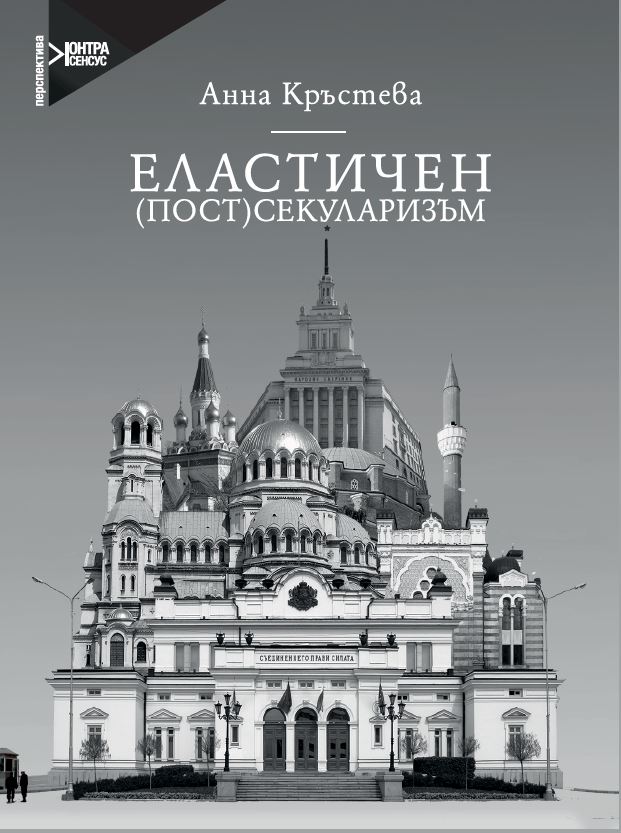
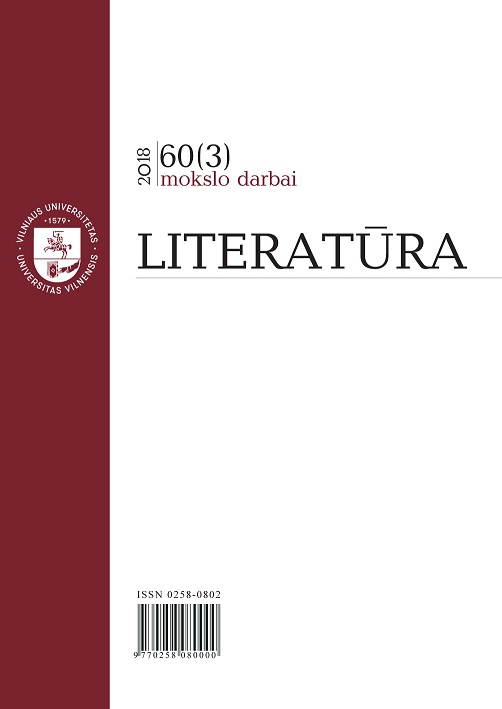
Keywords: Apuleius; De Deo Socratis; Lithuanian translation; commentary; theory of daemons; cosmology; theology; Middle Platonism;
This publication consists of the first published Lithuanian translation of Apuleius’s De deo Socratis, accompanied with a comprehensive commentary. Apuleius’s De deo Socratis examines the subject of daemons, which was very popular in the thought of Middle Platonism. In his treatise, Apuleius not only presents a general theory of daemons but gives authorial insights into the theme as well. Apuleius emphasizes the cosmological and theological aspects of the theory of daemons and their importance for practical behavior.
More...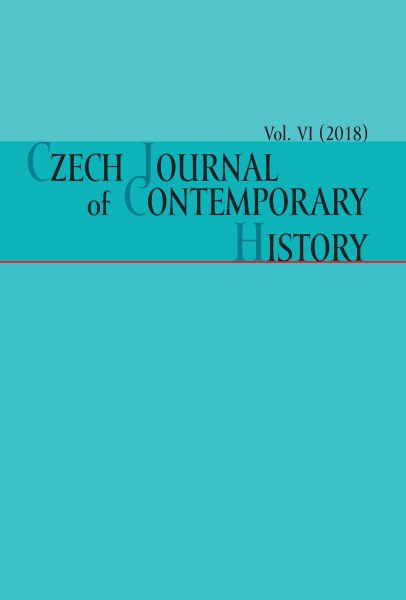
Keywords: Czechoslovakia; Communist regime; corporate management; socialist supervision; late socialism;
The study deals with issues of corporate management and pitfalls of the “socialist supervision” in Czechoslovak enterprises in the period of late socialism. Using documents of the Communist Party of Czechoslovakia and the State Security, period texts and specialized publications, it shows how party organs and state authorities were unsuccessfully trying to make supervisory mechanisms and audits a functional tool of the implementation of the ruling party´s economic policy. The author analyzes the supervisory and audit mechanisms that were used, and outlines basic reasons of the almost fatal failure of supervisory activities of the system which was, in a way, obsessed with supervision and control. He explains the systemic 216 Czech Journal of Contemporary History, Vol. VI conditionality of the supervisory system which socialist managers often and in many respects bent to suit the needs of the enterprises they were in charge of; such situation naturally did not match the needs of the society as a whole. Using many specifi c cases as an example, the study graphically shows that members of the Czechoslovak corporate management community in the 1980s were fully aware of systemic, political and social limitations of the supervisory system which they managed to modify, fairly successfully, to suit intra-corporate conditions. The result was a situation in which the party leadership was reacting to increasingly obvious symptoms of the “agony of the centrally planned economy” by adopting various directives and guidelines to make the supervisory process more effective and to consistently promote the “whoever manages – supervises” principle. However, the anticipated effect did not materialize and, at the end of the day, the non-functional supervisory mechanisms made a substantial contribution to the collapse of the Communist regime in Czechoslovakia.
More...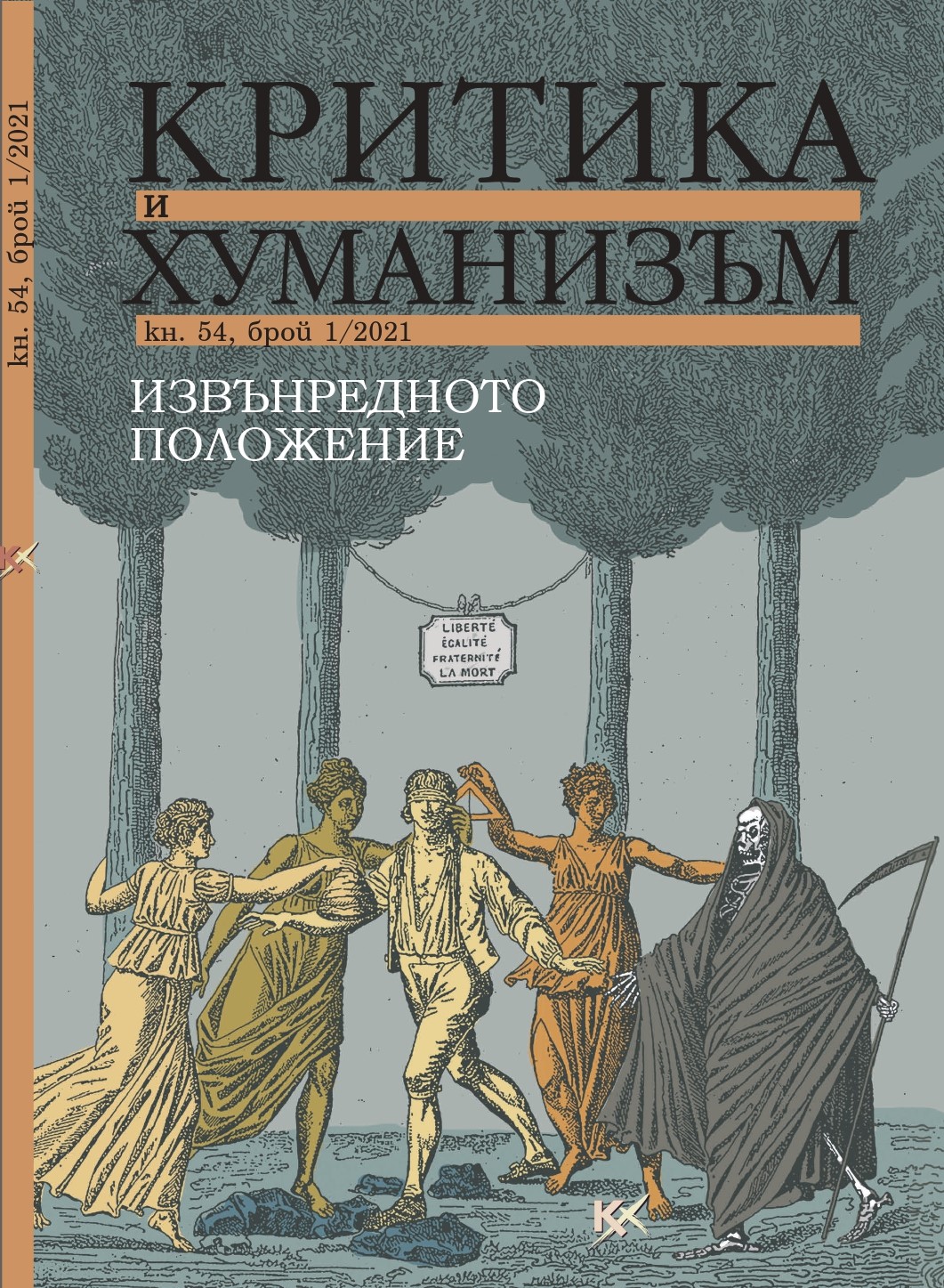
Keywords: state of exception; Republic; French Revolution; state; order; violence; divine violence; real state of exception / virtual state of exception; ontology of violence; anomie; allonomie
The article aims to shed light on the conceptual history of the notion of state of exception. The starting point of the analysis is the hypothesis of the relationship between the state of exception and the idea of foundational moment of politics, as it is developed by Carl Schmitt, Walter Benjamin and Theodor Reinach, the author of the fundamental study On the State of Emergency and the Institutions of Public Salvation (1885). Reinach and Schmitt’s analyses lead to the conclusion that the state of exception – the response to a major threat for the state, was conceived as necessary, if not imperative tool for public salvation in modern politics, starting with the French Revolution. When the legal-political order is threatened in its principles, the state of exception appears as a possibility of maintaining its normative foundation beyond its established forms. Although the state of exception has traditionally been associated with authoritarian and totalitarian regimes, Reinach’s historical analysis brings us to the conclusion that the state of exception is initially related to the very establishment of the Republic: it is the result of a juridical invention, which gives impetus to the development of its legal system. Does this mean that there is no substantial difference between a state of exception and a normative order? On such premises, how to tackle the specificity of the current situation of ‘sanitary emergency’? Proposing a metacritical overview of Walter Benjamin’sCrtical ontology of violence and its problematic recent re-reading by Giorgio Agamben, the article seeks to offer a few conceptual distinctions, allowing for positive analysis and experimental investigation of the present situation.
More...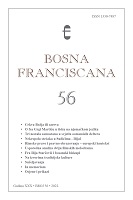
Keywords: traditions; cultural heritage; customs; hagiography; folklore;
The paper deals with the annual folk customs in Dugopolje that are related to holidays and commemorations during the Christmas period. The Christmas period lasts twelve days during which the people celebrate Christmas, St. Stephen the First Martyr, St. John the Apostle, Holy Innocents’ Day, New Year’s Eve, New Year’s Day and the Epiphany, all of which abound in both religious and secular customs in which the pre-Christian elements can be found. Religious customs are manifested through prayers, blessed water, going to the midnight mass and masses in general, lighting the candles. Lighting and the maintenance of fire, Christmas hay, Christmas pastries and bread, Christmas lunch, blessed water, customs and processions related to the laymen, as well as the ashes of the unburned Christmas yule log have an apotropaic and panspermic character. Giving children gifts for Christmas and New Year’s Day, as well as the whipping of the children’s foot soles on the Holy Innocents’ Day are of an educational nature. The deceased family members are also honored through prayers and candle lighting. With the help of scientifi c literature, the original field records collected in the Municipality of Dugopolje in the period from 2016 to 2022 are interpreted and analyzed.
More...